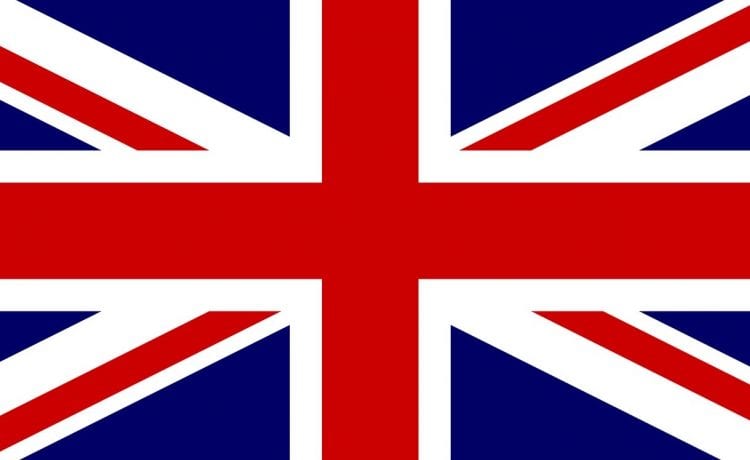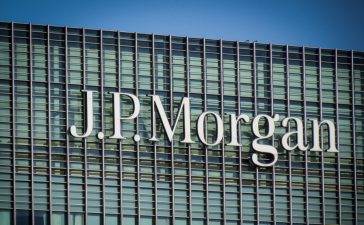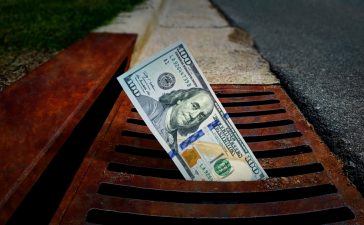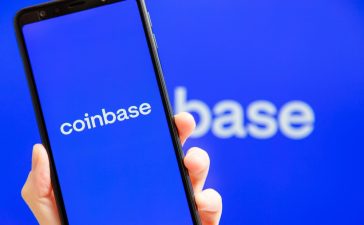The corporation announced the end of free TV licences for everyone over the age of 75 from next month, meaning more than three million households have to pay £157.50 for the service, or risk criminal prosecution
The Government is threatening to ban the BBC from taking viewers who don’t pay the licence fee to court as the row over controversial plans to charge millions of pensioners for the right to watch television continues.
The corporation yesterday announced the end of free TV licences for everyone over the age of 75 from next month, meaning more than three million households have to find a way to pay £157.50 for the service, or risk criminal prosecution.
Only those who receive pension credit – estimated to be around 1.5 million people – will still be able to access live television and the BBC’s iPlayer for free – services which have been an invaluable lifeline for the elderly during lockdown.
Boris Johnson’s spokesman said it was ‘the wrong decision’ last night while Culture Secretary Oliver Dowden said he feels ‘let down’ and that the decision will ‘have an impact’ on proposals to decriminalise the licence fee.
Julian Knight, chairman of the Commons’ digital culture, media and sport committee, told the Telegraph: It will be an own goal of epic proportions to start hauling people over 75 in front of the courts. There needs to be common sense here.
Anyone who watches or records TV, or uses the BBC’s streaming service, without a licence could be prosecuted and even jailed, but ministers have spent months consulting on changing the law to eliminate prison sentences.
The number of people prosecuted for not having a licence was down on previous years to just under 129,000 in 2018.
The row comes as Dame Esther Rantzen said this morning the BBC should have waited to means-test the TV licence for over-75s and that the timing is ‘insensitive’.
But the broadcaster and Silver Line founder, 80, claimed politicians were trying to ‘scapegoat’ the BBC and doing so was a ‘slap in the face to older people’.
The BBC probably feel that their reputation is very high at the moment, she said.
They’ve been a fantastic source of news, they’re offering educational programmes for children who can’t go to school. So they’re taking advantage of this moment but I think that they should have left it until September, when life would have eased up a bit for all of us, particularly for older people, she said. I think if the BBC had waited until the autumn it would have been kinder.
The BBC’s plan was launched into chaos last night as it emerged the system used by 4.5million pensioners to pay their levy before August 1 is already unable to meet demand due to coronavirus staff cuts.
Over-75s will receive letters to advise them of the decision and the next step they need to take, namely contacting the TV Licensing call centre.
But a message on its website earlier said they are ‘prioritising customers in most urgent needs’ due to reduced staffing levels, adding this could lead to them being ‘unable to answer all your calls’ and a delay in responding to emails and letters.
The move has sparked criticism, including from the Prime Minister, whose official spokesperson said last night: This is the wrong decision. We recognise the value of free TV licences for over-75s and believe that they should be funded by the BBC.
Asked if the government would intervene, the PM’s spokesperson added: It is the BBC which is responsible for the administration of the over-75s concession but we are clear that this is the wrong decision and that we believe the value of free TV licences for over-75s should be funded by the BBC.
Culture minister Matt Warman also challenged the corporation in the Commons yesterday, arguing it has had ‘a generous licence fee settlement’, that it was ‘deeply disappointing’ to see the change being made, and adding: I would hope that there is yet time to reconsider.
However leading age charities and Labour’s shadow culture secretary have rounded on the Government, accusing ministers of ‘passing the buck’ and calling a refusal to fund the service a ‘betrayal’.
The free TV licence was introduced in 2000, but the BBC took on responsibility for funding the scheme as part of the charter agreement hammered out with the Government in 2015.
Corporation bosses argue it was the Government which took the decision to stop funding for free licences five years ago and that Parliament – through legislation – gave the responsibility to the BBC Board to make the decision on the future of the concession.
Britain’s elderly population has seen free access to live television and the BBC iPlayer service as an invaluable lifeline during lockdown but many are now facing another bill to deal with.
An estimated 1.5 million households could still be exempt from paying to watch live television or use the BBC iPlayer service, however, if someone over the age of 75 receives pension credits.
Age UK, which inspired more than 630,000 people to sign a petition against the proposals when they were first announced last year, described the announcement as ‘a kick in the teeth for millions of over 75s who have had a torrid time during this crisis’.
The change was originally due to be made on June 1, but the move was put on hold back in March, with bosses claiming the coronavirus pandemic had created ‘exceptional circumstances’ and that ‘now is not the right time’.
Delaying the move has cost the corporation some £35million a month, and, with an ageing population, the total cost to the BBC could have reached £1bn a year, bosses insist.
There have previously been warnings that allowing the licence to continue being free for all over 75 would lead to ‘unprecedented closures’ of services.
The broadcaster, which faces increased competition from streaming giants, has said it cannot afford to take on the financial burden from the Government.
Continuing with the Government scheme would have cost the corporation £745 million, the BBC said, meaning the closures of BBC Two, BBC Four, the BBC News Channel, the BBC Scotland channel, Radio 5 Live, and a number of local radio stations, as well as other cuts and reductions.
But the move provoked a swathe of criticism, with the likes of Dame Helen Mirren calling the end of the universal entitlement ‘heartbreaking’, and former prime minister Gordon Brown saying ‘costs should be covered by the Government’.
The decision comes as the Government is set to announce its response to a consultation on decriminalising licence fee evasion.
The Government launched an eight-week consultation in February which received more than 100,00 responses.
A report in May suggested that hundreds of people had opted to cancel their TV licence each day over the past five months.
Meanwhile, the broadcaster has launched a programme of voluntary redundancy as it attempts to make £125 million in savings this year – on top of the previous £800 million savings target – due to the pandemic.
It has also announced job cuts in TV news and local radio in England and said it was axing more than 150 roles in Scotland, Wales and Northern Ireland.
It also plans to cut around 450 jobs in BBC News, to take place at a later date.
The broadcaster said safety would be at the ‘heart’ of the scheme’, as ‘no-one needs to take any immediate action, or leave their home, to claim for a free TV licence or pay for one’.
BBC Chairman, Sir David Clementi, said: The decision to commence the new scheme in August has not been easy, but implementation of the new scheme will be Covid-19 safe.
The BBC could not continue delaying the scheme without impacting on programmes and services.
Around 1.5 million households could get free TV licences if someone is over 75 and receives Pension Credit, and 450,000 of them have already applied. And critically it is not the BBC making that judgement about poverty. It is the Government who sets and controls that measure, he said.
Like most organisations the BBC is under severe financial pressure due to the pandemic, yet we have continued to put the public first in all our decisions, Clementi said.
He said, I believe continuing to fund some free TV licences is the fairest decision for the public, as we will be supporting the poorest oldest pensioners without impacting the programmes and services that all audiences love.
Mr Knight described the decision as a ‘body blow to millions of British pensioners’, saying he had hoped the Government and the BBC would thrash out ‘a fresh deal’.
The Conservative MP said: This mess is a result of a poor decision struck by the outgoing director-general and now Britain’s pensioners are having to pick up the cost.
Fellow Tory Andrew Rosindell, MP for Romford, tweeted: Considering the substantial salaries of some BBC presenters, the scrapping of the over-75s free TV license is absolutely unacceptable!
This decision rubs salt in the wounds of the generation hardest hit by the coronavirus! Maybe it’s time to scrap the license fee altogether!, Rosindell said.
Caroline Abrahams, Age UK charity director, added: We’re bitterly disappointed by this decision on behalf of the millions of over 75s who have had a torrid time over the last few months and for whom this must feel like another kick in the teeth, during a terrible year.
Many older people on low incomes have told us that if they have to find £150 plus a year to pay for a licence then they will have to forego some other essential, or try to survive without TV at all, she said.
We genuinely worry about the mental health of older people living on their own in this situation if they have to give up their cherished TV – for some it really is all they have and their main way of alleviating their chronic loneliness, she said.
Abrahams said, everyone needs to understand that under the BBC’s scheme many hundreds of thousands of the poorest pensioners will be facing a bill they will simply be unable to afford to pay. That’s due to its flawed design – you only get a free licence if you are receiving Pension Credit but as many as two in five of all the pensioners on the lowest incomes do not receive this benefit, even though they are entitled to it.
The BBC has taken this decision today but in reality the principal responsibility lies with the Government, she added.
Abrahams said, the Government cannot absolve itself of responsibility for the upset and distress being caused to many of our over-75s today, the poorest and most isolated above all. And the sadness is that these older people have already endured so much over the last few months. The Government needs to sit down with the BBC urgently to keep these TV licences for over-75s free.
Broadcasting union Bectu also argued that the Government should pay for the entitlement.
Its head Philippa Childs said: This BBC has been put in an impossible position by the Government on free licences… It should never have had to choose between charging over-75s and losing essential revenue.
The BBC’s role is to inform educate and entertain the nation, not make welfare or benefit decisions. That is the role of government and it is the Government who should be administering and funding this benefit, Philippa said.
Jo Stevens, Labour’s Shadow Culture Secretary, said: The refusal of the Government to fund this vital service after promising to do so is nothing short of betrayal.
Many over-75s have spent months at home with TV providing an invaluable source of company during the pandemic, Stevens said.
Stevens said, for the Government to blame the BBC who are having to contend with huge cuts is simply passing the buck.
Before the announcement was made, shadow minister Christian Matheson told the Commons that the proposals meant many pensioners could be ‘forced to choose between eating and watching TV’.
He added: The BBC is cutting jobs and content to pay for the cost of the licence dumped on them by the government.
Culture minister Matt Warman replied: The fact is that the BBC has had a generous licence fee settlement and it is deeply disappointing that they have chosen to go down the path that they apparently are going down.





